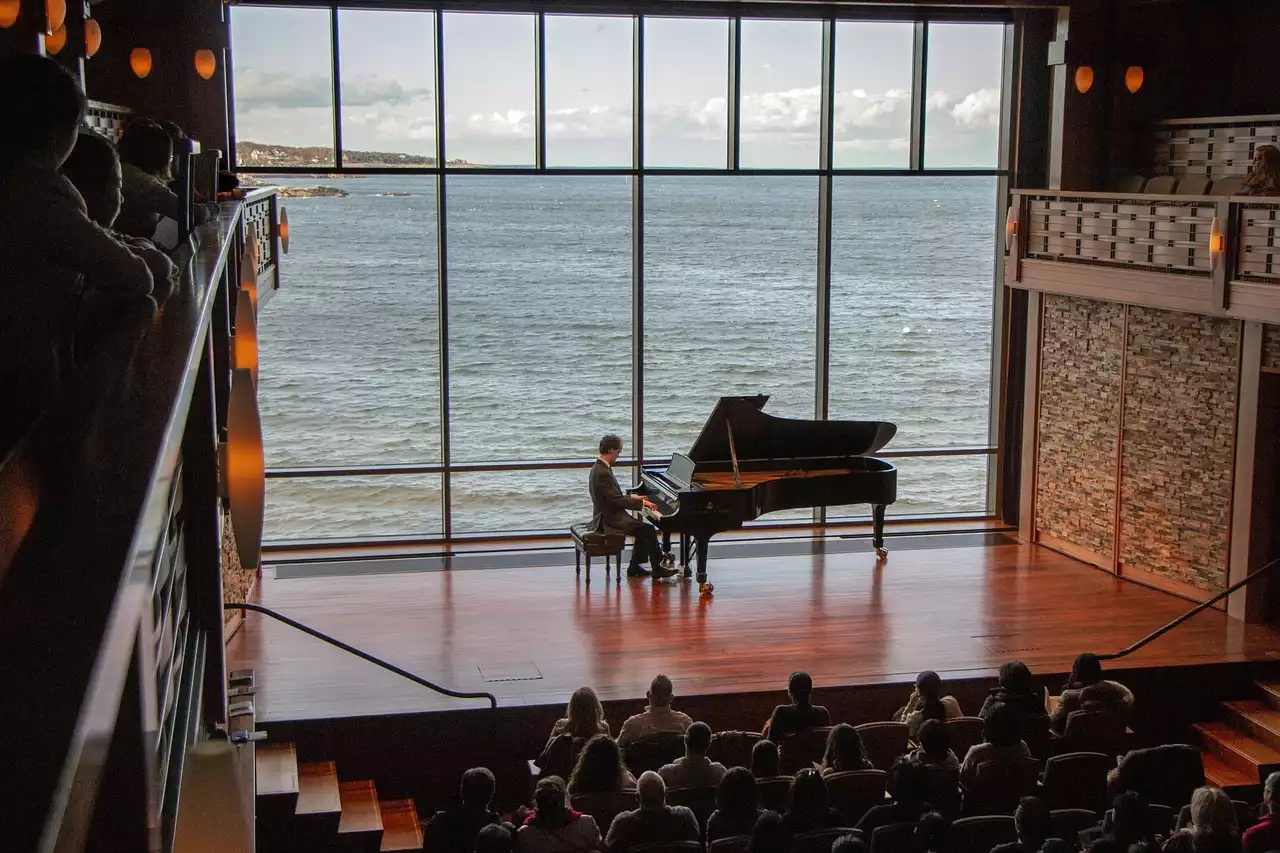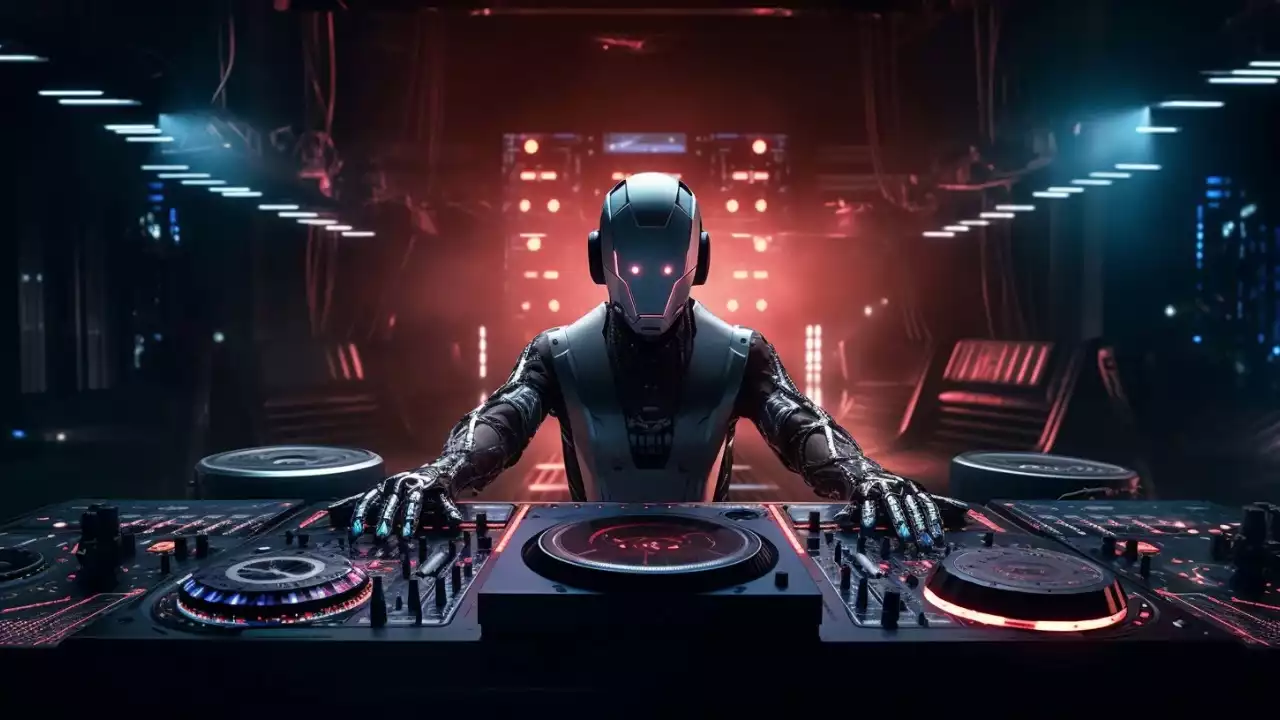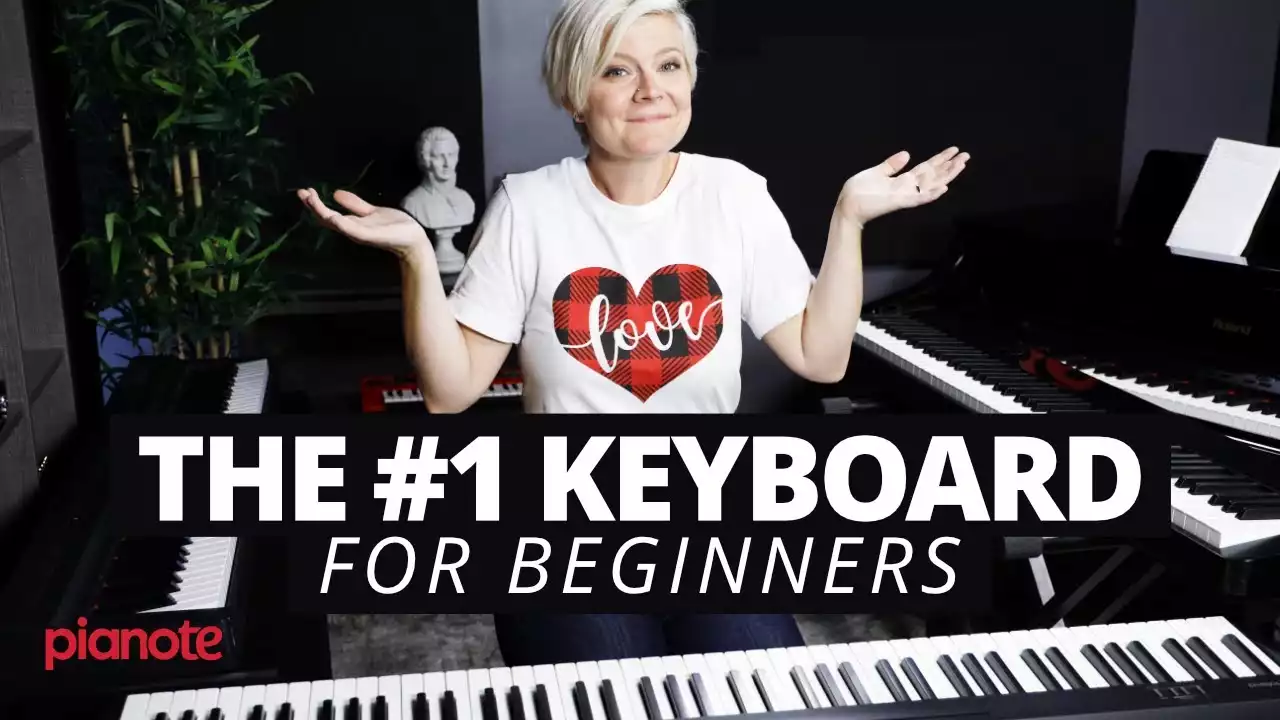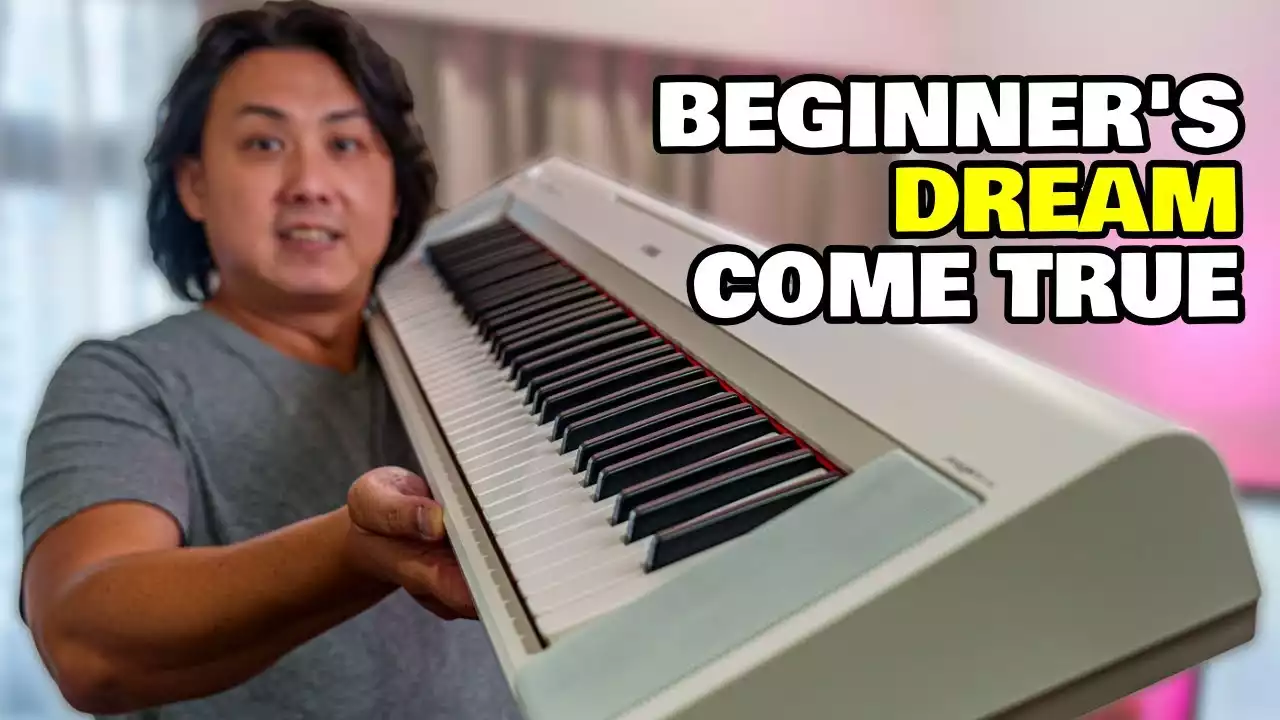Origins of the Piano
The piano, with its elegant curves and rich sound, is a musical instrument that has captured the hearts of countless musicians and listeners throughout history. But where did this magnificent instrument originate? Let's take a journey back in time to explore the origins of the piano.
Origins of the Piano
The Evolution of the Piano
As the piano gained popularity, many improvements and advancements were made to its design and construction. During the 19th century, the piano underwent significant changes, resulting in a more refined and powerful instrument.
One of the most notable developments was the introduction of the iron frame, which allowed for greater string tension and increased volume. This innovation transformed the piano into a concert instrument capable of filling large halls with its majestic sound.
Another significant advancement was the development of the double escapement action by Sébastien Érard. This action allowed for faster repetition of notes, enabling pianists to perform intricate and virtuosic passages with ease.
Evolution of Piano (with Tony DeSare)
The Benefits of Playing Piano
Playing the piano comes with a myriad of benefits that extend beyond the realm of music. It is a pursuit that engages both the mind and body, providing a holistic approach to personal growth and development. Research has shown that learning to play the piano can enhance cognitive abilities, improve memory, and increase focus and concentration. The act of reading sheet music and translating it into finger movements also helps improve hand-eye coordination and fine motor skills. Additionally, playing the piano allows for self-expression and emotional release, serving as a therapeutic outlet for stress and anxiety. As you immerse yourself in the world of piano playing, you'll find that it stimulates creativity and boosts self-confidence. The piano is not just an instrument; it is a gateway to self-discovery and personal fulfillment.
10 Amazing Brain Benefits of Piano Playing
Getting Started with Piano Playing
Before diving into the intricacies of piano playing, it's essential to familiarize yourself with the different types of pianos available. The two main categories are acoustic and digital pianos. Acoustic pianos produce sound through hammers striking strings, while digital pianos use electronic technology to replicate the sound and feel of an acoustic piano. Both options have their merits, so it's crucial to consider factors such as budget, space, and personal preference when choosing the right instrument for you.
Once you have your piano in place, it's time to take the first steps towards becoming a pianist. Begin by familiarizing yourself with the layout of the piano keyboard. The keyboard consists of 88 keys, with white keys representing natural notes (A to G) and black keys representing sharps and flats. Practice proper hand placement by positioning your fingers on the keys, with your thumbs resting on middle C. This hand position forms the foundation for proper technique and enables fluid movement across the keyboard.
How to start playing piano or keyboard
Steps to Start Playing the Piano
Now that you're acquainted with the basics, let's delve into the steps to start playing the piano. The first step is to learn to read sheet music. Sheet music is a written form of musical notation that represents the pitch, rhythm, and timing of a piece of music. Familiarize yourself with the different symbols and markings used in sheet music, such as clefs, notes, rests, and dynamics. Understanding these symbols will enable you to decipher the music and play it accurately.
Next, focus on developing finger dexterity and coordination. Begin with simple exercises that involve playing scales and arpeggios. Scales are a series of notes played in a specific pattern, while arpeggios are chords played one note at a time. Practicing these exercises will help strengthen your fingers and improve your ability to navigate the keyboard with ease.
As you progress, start learning beginner-level songs that incorporate the techniques you've been practicing. Choose pieces that align with your musical preferences and provide a balance between challenge and enjoyment. Popular piano songs for beginners include classics like Beethoven's "Für Elise," Bach's "Minuet in G Major," and Debussy's "Clair de Lune." By practicing these songs, you'll gain confidence and develop a repertoire of melodies to showcase your progress.
Piano Lessons for Beginners: Part 1
The Art of Improvisation and Composition
Once you have a solid foundation in piano playing, it's time to explore the art of improvisation and composition. Improvisation involves spontaneously creating music on the spot, while composition entails crafting original pieces of music. Both forms of musical expression allow you to tap into your creativity and add a personal touch to your piano playing.
To begin improvising, start by experimenting with different chord progressions and melodies. Explore various musical styles, such as jazz, blues, or classical, and let your intuition guide your fingers. Improvisation is about embracing spontaneity and trusting your musical instincts. As you gain confidence, you can incorporate improvisation into your practice sessions and performances, adding a unique flair to your playing.
Composition, on the other hand, involves the deliberate creation of musical pieces. Start by exploring different musical structures, such as verses, choruses, and bridges. Experiment with different chord progressions, melodies, and rhythms to create your own compositions. Don't be afraid to embrace your individuality and let your emotions guide your composition. Whether you're creating a soothing lullaby or an energetic piece, composition allows you to express yourself and share your musical voice with the world.
The Art of Improvisation: Inspiration and Meaning for Music
Unlocking Your Musical Potential
Playing the piano is a lifelong journey that offers endless possibilities for growth and self-expression. Embrace the challenges, celebrate the triumphs, and never stop exploring the vast world of piano playing. Remember that practice is key to unlocking your musical potential. Dedicate regular time to your piano playing, be patient with yourself, and enjoy the process. Seek opportunities to perform and share your music with others, whether it's in formal recitals or intimate gatherings. The piano has the power to touch hearts, evoke emotions, and create connections. Embrace the magic of the piano and let your music resonate with the world.
So, are you ready to embark on this musical adventure? The world of piano is waiting for you. Grab a seat, place your fingers on the keys, and let the journey begin.
Keywords: piano, playing the piano, pianist, musical journey, technique, chords, scales, melodies, improvisation, composition, musical potential
Unlocking Your Musical Potential with Rapid Flow
The Harpsichord: A Precursor to the Piano
Before the piano came into existence, the harpsichord reigned supreme as the keyboard instrument of choice. The harpsichord, with its plucked strings and lack of dynamic control, had limitations that composers and musicians began to feel restricted by. They yearned for an instrument that could produce a wider range of dynamics and expressiveness.
From the Clavichord to the Modern Piano - Part 1 of 2
Bartolomeo Cristofori: The Inventor of the Piano
In the early 18th century, an Italian harpsichord maker named Bartolomeo Cristofori had a revolutionary idea. He set out to create an instrument that would provide the player with the ability to control the volume and expression of each note. This marked the birth of the piano, an instrument that would change the course of music history.
Cristofori's piano, or "pianoforte" as it was originally called, featured hammers that struck the strings, allowing for varying degrees of loudness depending on how the keys were pressed. This innovative mechanism paved the way for the piano to become the instrument of choice for musicians seeking greater versatility and expressive capabilities.
Bartolomeo Cristofori, Inventor of the Piano: - Stuff of Genius
The Future of the Piano
As we look ahead, it is clear that the piano will continue to evolve and adapt to the changing musical landscape. While digital keyboards and synthesizers have gained popularity in recent years, there is still a deep appreciation for the acoustic piano and its timeless beauty.
The future of piano
The Digital Revolution: Blending Tradition and Technology
The advent of digital pianos has brought new possibilities to the world of piano playing. These instruments combine the look and feel of an acoustic piano with the convenience and versatility of digital technology. With features such as different instrument sounds, recording capabilities, and connectivity options, digital pianos have become a popular choice for musicians and enthusiasts alike.
Digital Revolution & Digitalisation Crash Course
Pushing the Boundaries: Experimental Piano Techniques
Innovation and experimentation are at the core of musical progress. Pianists and composers are constantly pushing the boundaries of what the piano can do, exploring new techniques and sounds. Extended techniques, such as prepared piano, where objects are placed on or between the strings to alter the sound, have opened up new avenues for creative expression.
Basic Cautions in Experimental Piano Music
Embracing Diversity: The Piano in Different Genres
While classical music has traditionally been associated with the piano, this versatile instrument has found its place in a wide range of genres. From jazz and blues to rock and pop, the piano adds depth and character to any musical style. Pianists in these genres often incorporate improvisation and unique playing styles, showcasing the piano's versatility and adaptability.
Embracing the classical crossover genre
The Power of Education: Cultivating the Next Generation
As we look to the future, it is crucial to pass on the art of piano playing to future generations. Education and accessibility play a vital role in ensuring that the piano continues to thrive. From traditional piano lessons to online tutorials and interactive learning platforms, there are now more opportunities than ever for aspiring pianists to hone their skills and discover their musical potential.
In conclusion, the piano's rich history and enduring popularity are a testament to its timeless appeal. From its humble beginnings as a harpsichord predecessor to its evolution into a powerful and expressive instrument, the piano has captivated audiences for centuries. As we embrace the future of piano playing, we can expect new technologies, innovative techniques, and a continued celebration of the piano's diversity. So, whether you are just starting your musical journey or are a seasoned pianist, the world of piano awaits, ready to inspire and amaze.
Famous Pianists
Have you ever dreamed of playing the piano like a virtuoso? Mastering this majestic instrument can unlock a world of creativity and self-expression. Whether you're a beginner or an experienced musician looking to refine your skills, the piano offers a timeless and versatile art form that can captivate audiences and transport them to musical realms like no other.
In this article, we will explore the enchanting world of piano playing and discover the secrets to becoming a proficient pianist. From learning the basics of hand placement and proper technique to delving into more complex musical concepts, we will guide you on your musical journey, step by step. Unleash your inner maestro as we delve into the intricacies of chords, scales, and melodies. Discover the art of improvisation and composition as you embrace the limitless potential of the piano. With practice, dedication, and a zest for experimentation, you can unlock your musical potential and create melodies that resonate with the deepest depths of the soul. Get ready to embark on a musical adventure unlike any other. Grab a seat, place your fingers on the keys, and let the journey begin.
Top 5 piano players in the world
Historical Overview of Famous Pianists
The world of piano playing is steeped in history, with countless virtuosos leaving their mark on the art form. To truly understand the evolution of piano playing, it is essential to explore the achievements of famous pianists throughout the centuries. From the classical era to the modern age, these maestros have shaped the way we approach and appreciate piano music.
During the 19th century, the world witnessed the rise of many influential pianists. One such figure was Ludwig van Beethoven, whose compositions revolutionized the piano repertoire. Beethoven's virtuosity and innovative approach to composing pushed the boundaries of what was thought possible on the piano. His famous works, such as the Moonlight Sonata and the Pathétique Sonata, continue to inspire pianists to this day.
Moving into the 20th century, we encounter a diverse range of famous pianists who made significant contributions to the art form. Sergei Rachmaninoff, known for his powerful and emotive playing, captured audiences with his technical prowess and deep musicality. His interpretations of composers like Chopin and Tchaikovsky have become legendary.
The greatest pianists of all time
Famous Pianists of the 19th Century
In the 19th century, the piano was at the forefront of musical innovation, and many pianists emerged as true virtuosos. One of the most renowned pianists of this era was Frédéric Chopin. Known for his poetic and expressive playing, Chopin's compositions are a staple of the piano repertoire. His ability to capture the emotions and nuances of the music through his playing has made him a beloved figure in the world of classical music.
Another influential pianist of the 19th century was Franz Liszt. Liszt's technical prowess and showmanship revolutionized piano performance. His dazzling virtuosity and innovative playing style captivated audiences around the world. Liszt's contributions to piano music extended beyond his performances, as he also composed numerous works for the instrument, including his famous Hungarian Rhapsodies.
Chopin Etudes played by 19th-century born Pianists
Famous Pianists of the 20th Century
As we delve into the 20th century, we encounter a new wave of pianists who pushed the boundaries of piano playing even further. One such figure is Vladimir Horowitz, whose electrifying performances mesmerized audiences worldwide. Horowitz's technical brilliance and unique interpretations of classical repertoire earned him a place among the greatest pianists of all time.
Another influential pianist of the 20th century is Martha Argerich. Known for her fiery and passionate playing, Argerich's interpretations of composers like Chopin, Prokofiev, and Ravel are revered for their intensity and emotional depth. Her performances continue to captivate audiences and inspire aspiring pianists.
10 Great Pianists Of The 20th Century
Classical Pianists
Classical piano music has a rich and storied history, with countless pianists leaving their mark on the genre. One of the most celebrated classical pianists of all time is Artur Rubinstein. Known for his lyrical and poetic playing, Rubinstein's interpretations of composers like Chopin and Brahms are considered definitive. His ability to convey the emotions and nuances of the music through his playing is truly remarkable.
Another notable classical pianist is Mitsuko Uchida. Uchida's refined and elegant playing style has earned her critical acclaim and a loyal fan base. Her interpretations of Mozart and Schubert are particularly renowned for their sensitivity and musicality. Uchida's technical precision and deep understanding of the composers' intentions make her a beloved figure in the world of classical piano.
Types of great Classical Pianists
Jazz Pianists
The world of piano playing extends far beyond the classical realm, with jazz pianists adding their unique flavor to the art form. One of the most influential jazz pianists of all time is Thelonious Monk. Known for his innovative harmonies and distinctive improvisational style, Monk's contributions to jazz music are immeasurable. His compositions, such as "'Round Midnight" and "Blue Monk," have become jazz standards.
Another notable jazz pianist is Bill Evans. Evans' introspective and lyrical playing style revolutionized the jazz piano trio format. His collaborations with musicians like Scott LaFaro and Paul Motian pushed the boundaries of what was possible in a jazz ensemble. Evans' compositions and recordings continue to inspire jazz pianists to this day.
The Top 10 Greatest Jazz Pianists of All Time
Conclusion
The world of piano playing is a vast and diverse landscape, filled with countless virtuosos who have left their indelible mark on the art form. From the classical era to the modern age, these famous pianists have shaped the way we approach and appreciate piano music. Whether you find inspiration in the classical compositions of Beethoven and Chopin or the improvisational genius of jazz pianists like Monk and Evans, there is a wealth of knowledge and inspiration to be found in their playing.
As you embark on your own musical journey, remember that becoming a proficient pianist takes time, dedication, and a deep love for the instrument. Embrace the challenges and embrace the joy of creating music. With practice, perseverance, and a willingness to explore new musical horizons, you can unlock your own potential as a pianist and create melodies that resonate with the deepest depths of the soul.
So, grab a seat, place your fingers on the keys, and let the journey begin. The world of piano is waiting for you.









.png?size=50)

